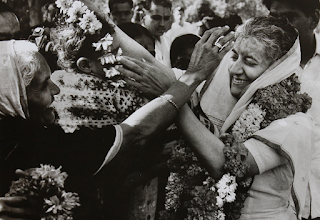Indira Gandhi and the Democratic Mandate of 1980 | Indira I Am Courage

Indira Gandhi’s victory in the 1980 general election reaffirmed democratic values and public trust. Indira Gandhi returned to power only when the people renewed their mandate through the ballot. Her comeback proved that legitimacy flows from public consent, not authority. This historic moment validated India’s electoral system. Explore this defining chapter with Indira I Am Courage .



